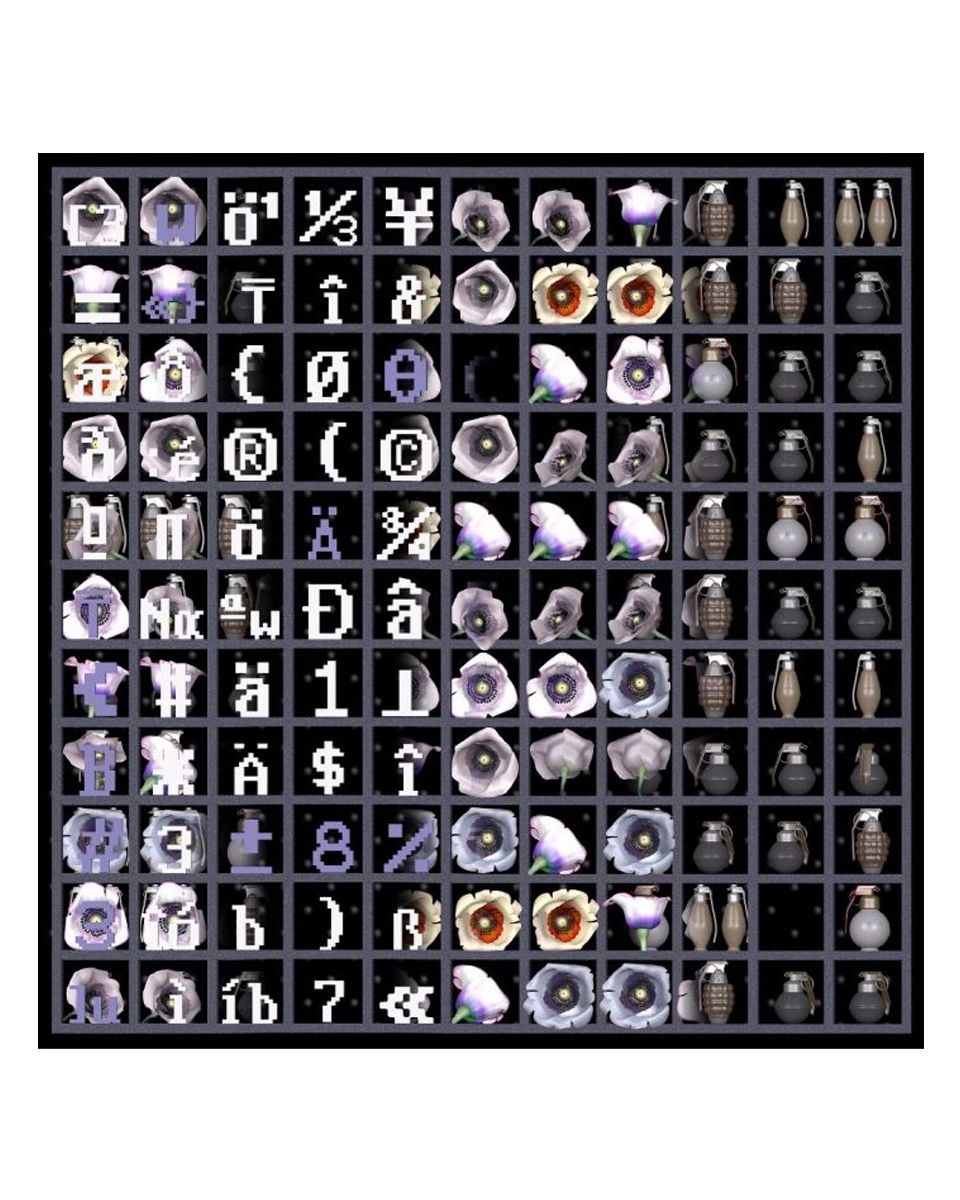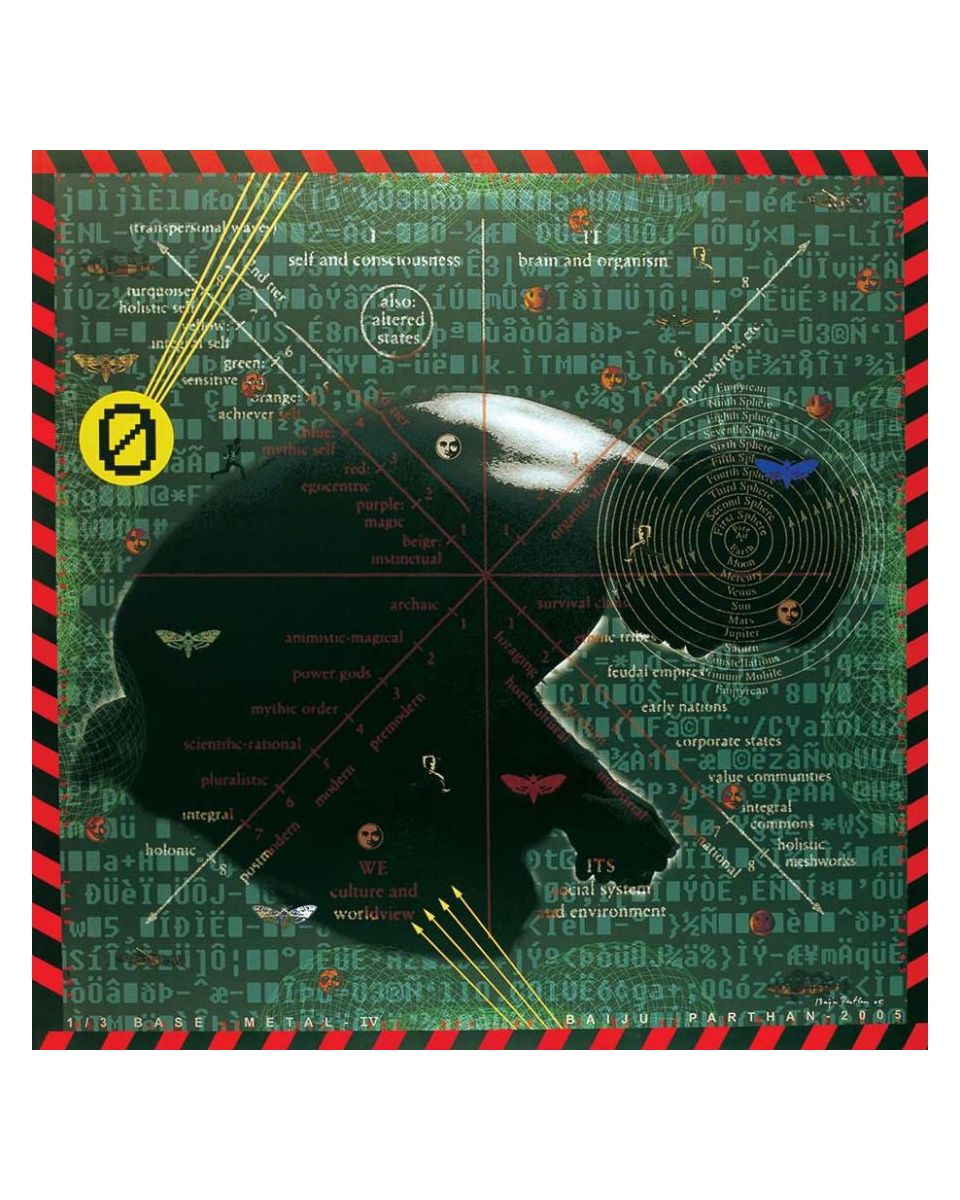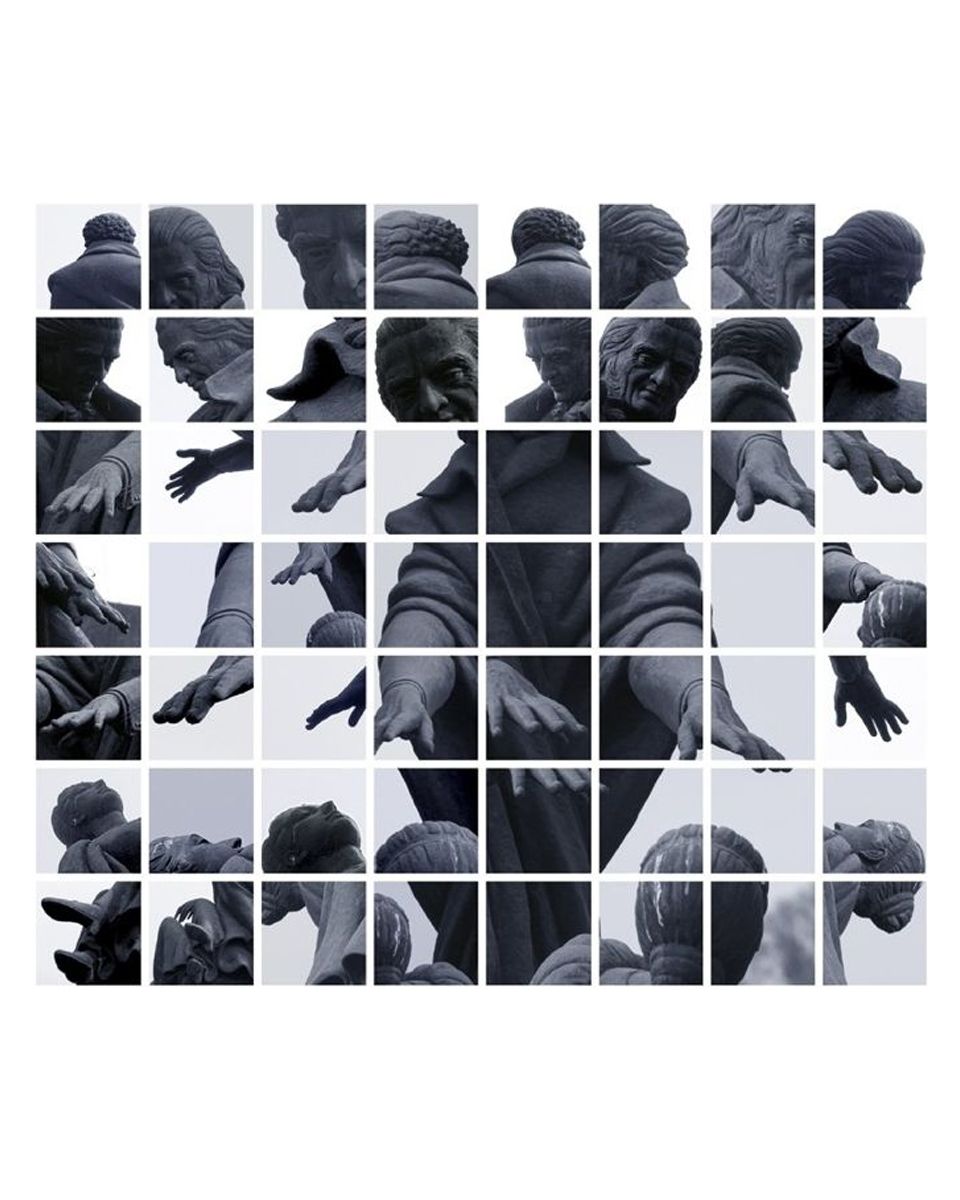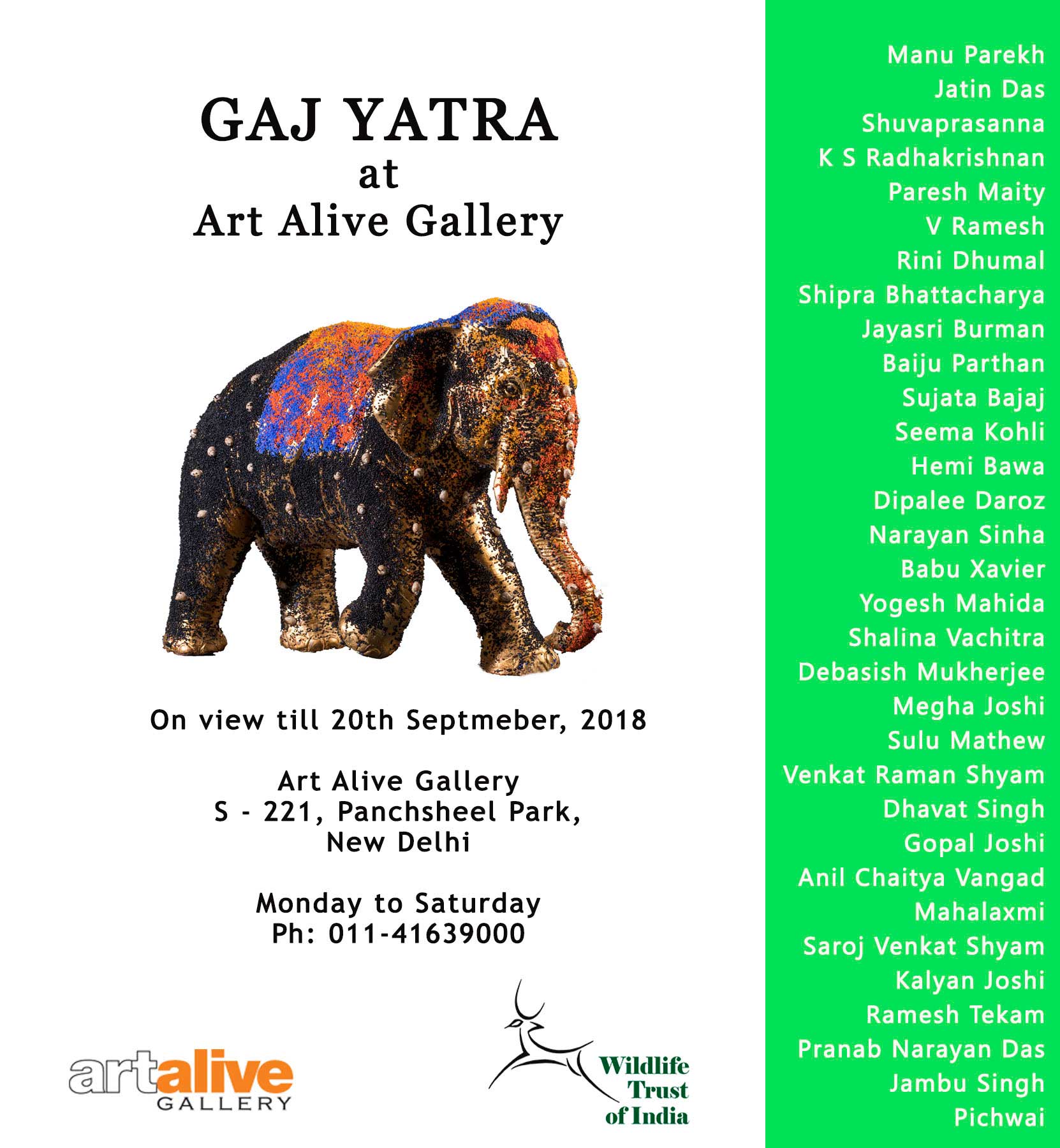Baiju Parthan
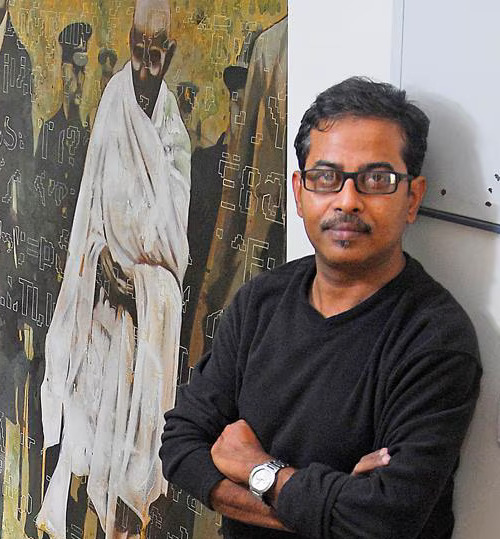
Statement
'Base Metal' is the nomenclature used in ancient alchemy to denote a common or any inexpensive metal that can be transmuted into Gold. Generally spoken about as the 'great work' this alchemical process is actually a metaphor for personal transformation. I have used these ancient alchemical references to speak about the information technology of today and its effect on our life. How cryptic computer codes and binary streams made up of zero(s) and one(s) are transmuting our experience of reality for better or for worse.
Biography
Baiju Parthan born in 1956 took a BSc in botany and embarked on an engineering degree before escaping the sciences as well as his native Kerala. Enrolling for a BFA in Painting at the Goa College of Art, he arrived there at the height of the hippie counterculture. Parthana's lifelong passion for cosmography, Buddhist mandalas, Jungian psychoanalysis, and shamanism originates in this period. Migrating to Bombay, Parthan joined The Times of India group as an editorial artist, working mainly for The Illustrated Weekly of India, which nurtured his literary, philosophical and artistic interests. Soon, he embraced the life of the independent artist, developing both his painting and his new-media projects, these latter being unveiled with a groundbreaking exhibition, â Brahmaa's Homepage and Other Cyber Stuff (Gallery Lakeeren, Bombay, 2000). While translating his concern with pervasive global media flows from the digital to the painterly context, Parthan pioneered the trend that Nancy Adajania has described as a new mediatic realism. Parthan has participated in numerous curated exhibitions, including an Under Construction a(Japan Foundation, Tokyo, 2002) and a ZOOM!a (co-curated by Nancy Adajania and Luis Serpa, Culturgest Museum, Lisbon, 2004). Ranjit Hoskotea's book on the artist, Baiju Parthan: A Usera's Manual, was published by Afterimage, Bombay (2006).
Art Alive Gallery is one of the top rated art galleries in Delhi exhibiting a vast collection of Indian contemporary art including paintings, abstract paintings, watercolours, sculptures, Ceramics art, as well as art books. The art gallery in Delhi offers a selection of artworks such as Sakti Burman paintings, Krishen Khanna paintings, Thota Vaikuntam paintings, Paresh Maity paintings, Jayasri Burman paintings, Manu Parekh paintings, Akbar Padamsee paintings, S. Harsha Vardhana paintings, S.H. Raza paintings, Chandra Bhattacharjee paintings, and Maya Burman paintings among many others. A prominent voice committed to promoting modern Indian art and traditional Indian art on the world platform, the art gallery in Delhi has consistently curated Art exhibition all over the world carving a distinct position for itself by creating an effective visual and interactive dialogue. Art Alive Gallery houses the largest collection of paintings and sculptures by Paresh Maity among other indian art galleries. Being well-known among the Delhi art galleries, Art Alive’s multifaceted approach to art makes it one of the top art galleries in India.


